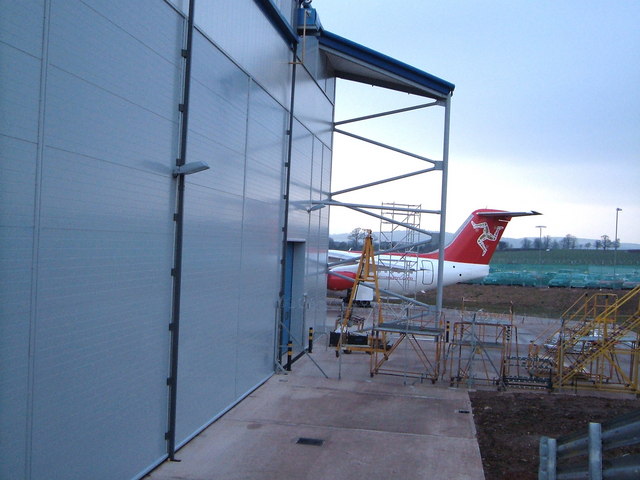South West businesses and local authorities are buying into the Tory idea of freeports turbocharging the economy. But who are the real winners? And what are we set to lose if the region embraces these low tax, zero tariff zones? Andrew Bell, a member of Transition Exeter, investigates.
There has been a flurry of excitement at the prospect of thousands of new jobs in the South West based on a “freeport” around Exeter Airport when the Brexit transition period comes to an end.
Freeports are at best controversial, at worst little more than de-regulated tax havens. They are designed as areas geographically inside a country but legally outside it for customs purposes. This means that goods can enter and re-exit the freeport zone without incurring tariffs or undergoing import procedures. Typically, such zones enjoy lower taxes, tariffs and duties than the rest of the domestic economy and are created with the explicit aim of attracting investment, promoting trade and boosting domestic manufacturing and jobs.
The Conservatives have heralded freeports as an opportunity to turbocharge the economy post Brexit and it is an idea that has long been pushed by the chancellor Rishi Sunak. The Conservatives have repeatedly made the false claim that the EU is the only place where free ports don’t exist. They do. In fact there are around 80 free zones within the EU. However, a recent European Parliament report concluded that they encourage corruption, tax evasion and criminal activity and so they are likely to become more regulated.
So, the UK sees leaving the EU not so much as a new opportunity to create freeports but to fashion them in a way that places them at a competitive advantage against the EU. The calamitous hit our businesses and economy are expected to take at the end of the transition period – with or without a deal – means the UK government is frantically trying to find ways of deregulating, undercutting, lowering standards and cutting taxes to give UK businesses the competitive edge.
And South West businesses, together with local authorities, are buying into this.
A government consultation seeking views on the creation of 10 freeports across the UK recently ended. A consortium of key public and private partners in the South West appear gung-ho for freeports and clearly plan to bid to become one of the 10.
In response to the government consultation on freeports, they wax lyrical about how freeports offer “genuine opportunity to both drive forward the levelling up of the UK, support strong economies to grow and compete in an increasingly diverse world economy and further unlock the economic promise of Exeter and East Devon.”
Exeter airport is a key advocate of getting a South West freeport off the ground. They boast about how aviation activity at the airport has grown by a staggering 150% between 2005 and 2015 and that this growth was around two and half times faster than the rest of the sector across the UK.
Notably absent in their response is a single mention of climate change or how a freeport, which is set up with the intention of increasing business activity and boosting the movement of goods, will impact on carbon emissions. Or air or noise pollution. On the contrary, the consortium appears to suggest a freeport is an opportunity to ‘streamline existing environmental and regulatory frameworks’. In other words, colluding with a government who see Brexit as an opportunity to weaken standards compared to the EU – and UK’s current standards – and embark on a race to the bottom.
Yet the three local authorities involved – Devon County Council, Exeter City Council and East Devon Council – have all either declared a climate emergency and/or set target dates to become carbon neutral. It is inconceivable that expanding operations around an airport is compatible with tackling climate change, especially since aviation is the fastest growing contributor to greenhouse gas emissions. But clearly this is not enough of an emergency to stand in the way of business as usual.
Or indeed business as unusual. Because that is precisely the point of freeports. The consortium acknowledges that setting up a freeport around Exeter airport could suck businesses and jobs out of other areas, creating competitive advantages to those that set up there. Indeed, evidence from around the world suggests that in the main it is existing businesses that relocate into freeport areas, encouraged by regulatory relaxations and tax relief.
Few in society, aside from the wealthy, are likely to benefit from freeports. Especially since the relaxation of rules often applies to employee, product and environmental standards. Also, given the climate emergency, grand plans for economic development move us in exactly the wrong direction, threatening to undermine rather than benefit our future prosperity.
But we will all pick up the costs, through low pay, less tax revenue, and greater inequality. An Exeter and East Devon freeport would also see sprawling businesses within the zone, eating up more of Devon’s countryside and rich farmland, while inflating land and house prices in an area where affordable housing is already virtually non-existent.

